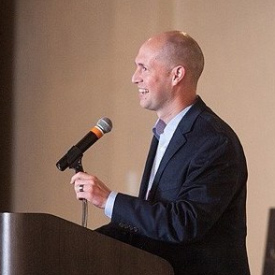A Place for Conversation
Note: This article was originally posted in December of 2011. Matt Bianco’s review of “The Little Way of Ruthie Leming” inspired this repost. Thank you, Matt.
Clover, South Carolina will always feel like home to me. My parents still live there and, on a recent trip down to help them move a few miles into the country, I journeyed through the little downtown area that just recently blossomed its second stoplight. The two-story brick buildings that house the town’s restaurants and antique shops still buzz with mid-day activity, their side walls painted with fresh murals, including one of the old railway cars that once trekked through the median on Main Street. This town stalwartly and beautifully resists change, but some simply cannot be stopped. The old softball field has been torn down in favor of a larger town park, and the textile mill shares the fate of countless other Southern factories – being bulldozed and wrecking-balled as I write. Granted, ages have passed since it last functioned, but at least it stands. Such changes are relatively small in my mind, at least compared with other losses the town has suffered.
I pass Dan McCall’s old barber shop, instinctively looking to the sky to spot the thin column of smoke that once spilled through the chimney of his wood-burning stove. It is nowhere to be found. Dan died several years back and his shop has been converted to a “hair salon,” much to the horror of his former customers. Dan McCall gave me my first haircut as a toddler, another before my high school graduation, and even the one before my wedding.
The walls of his small shop were plastered with pictures of motorcycle trips around the country, each one the prelude to a story. Our unspoken ritual was simple: small talk about family and the weather, then I would point to a picture and say, “Tell me about that one.” We go to Montana, Georgia, or perhaps the Grand Canyon. For thirty minutes of a ten minute haircut, I experience the best of his real work – storytelling.
Perhaps a mile or so down Main Street, I pass the side street where my grandmother lived. A godly mother of eleven, she graciously cared for my sister and me while my mother worked. Grandma grew up in the North Carolina mountains near Robbinsville and earned money as a girl ferrying people across the Tennessee River for a nickel, until her family was displaced when the valley was flooded by the Tennessee Valley Authority. I heard these stories and dozens more like them on her rug-covered living room floor, her front porch, and around her tiny kitchen table – many of them told and retold until her story became a part of my own.
Over the years, my all-too-slow gratitude for the barber shop chair and living room floor has grown and for them I both mourn and rejoice. Their loss is no simple nostalgia for me, no mere reflection of “times gone by.” I rejoice in the privilege of having enjoyed what so few now have – a sense of place and community, a place of conversation – yet I mourn when I realize that such places are now too few.
Joseph Pieper once said, “The Natural habit of truth is in interpersonal communications. Truth lives in dialogue and conversation.” Made in the image of God, the Storyteller whose tale is spun through history in real lives and real events, people need stories. We thrive upon them, find our place in them, and are taught through them. We all need dialogue and conversation: from my own young children and my high school students to us “grown-ups” who have been taught to forget. The gnawing hunger for it is replaced by the comparatively frail substitutes of social media and coffeehouse chains where the amount that once bought me a haircut now purchases a latte. But these tools and locales find their popularity in the human desire to be connected to something, to a people, to a place.
So, let us begin as families and schools. Let us refuse the weak contentment of a glowing screen; let’s stop replacing tales with textbooks and dialogue with busy work. Let us no longer spend time around one another but with one another, living out truth in dialogue and conversation.

Brian Phillips
Dr. Brian Phillips serves as a pastor in Concord, NC, where he lives with his wife and their four children.










